- Learning time
- 10 minutes
- First play time
- 30 minutes
Mandala
Designed by: Brett J. Gilbert,Trevor Benjamin
Mandala is a two-player game of set-collection: six different-coloured suits of cards make up the deck, and at the end of the game you’ll score points for cards collected in your ‘cup’. The catch is, you don’t know how much each set will score when the game begins…
The board is actually a cloth around the size of a tea-towel. On it are several areas: either side has their own area, with five places (the ‘river’) that will define how much each card colour is worth, and one place being the cup itself. Between you are the two areas where the action happens: two mountains with a field on either side: these are the mandalas.
Players are dealt a hand of five cards, two more to their pot and two are dealt onto each mountain, then play begins. Your goal is to collect cards from the mountains – and try to ensure they are worth more points than your opponents’. On your turn, you take one of three choices: you can add a single card to a mountain, and be rewarded by adding three more cards into your hand from the deck. You can play as many cards as you like into a field on your side of the mountain, but get no cards from the deck. Or you can dump cards from your hand and draw replacements.
The catch is when you add cards to a mandala, you can’t add a colour that’s already present in an adjacent field or mountain. And the moment all six colours are present in either mandala, cards are claimed: the player who has most cards in their field (- colour is immaterial) gets to choose from the mountain first, taking all the cards of a single colour for themselves, before the other player chooses next. Players take turns until all the mountain cards are gone, and then the field cards are discarded and two new mountain cards drawn from the deck. (Important: if you’ve played no cards into your field, you still take cards from the mountain, but must discard them)
Where do these claimed cards go? Well, if you have claimed two yellow cards and don’t have any yellow on your river, the first one must go here. Any extras go into your pot.
And this is the rub, because cards in the river will never move, must all be distinct colours, and their position defines what any matching coloured cards are worth: if, for instance, you have five yellows in your pot at the end of the game, they could be worth anything from 30 points to a catastrophically meagre 5 depending on where the yellow is on the river – in the 1pt space, the 2pt space and so on all the way up to 6pts.
The game continues until either the cards are exhausted, or – more likely – one or both players have filled up their river, at which point scores are tallied – the player with most points wins!
Joe says
After one game I'm intrigued. There's a sense of juggling that puts me in mind of another two player favourite of mine, Aton, but I wouldn't want to draw too close a comparison after a single try.
The guru's verdict
-
Take That!
Take That!
Not overwhelming, but certainly present and correct - you can grab first choice on the mountains, or make spoiling moves over what's taken
-
Fidget Factor!
Fidget Factor!
Despite the lack of theme and not-massively-intuitive mechanics, the down-time in Mandala is relatively low once you're up to speed on the rules...
-
Brain Burn!
Brain Burn!
...and those rules are actually very light. The brain-burning here is about implementation, as everything you do has consequences for both yourself and your opponent.
-
Again Again!
Again Again!
It's not a game sparkling with variety, but it's not a solvable puzzle either - every play represents a challenge.

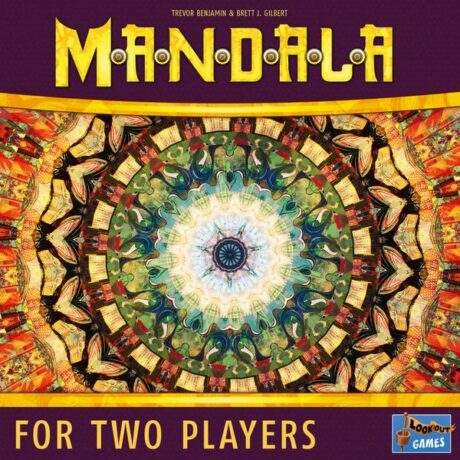
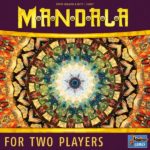
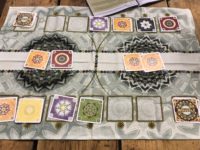
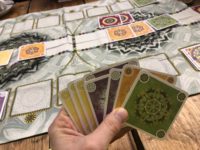
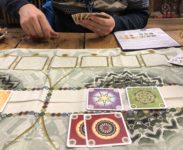


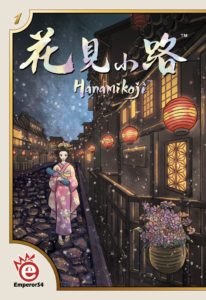
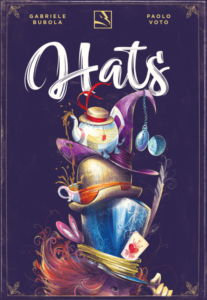
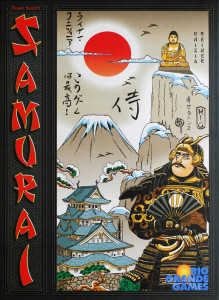
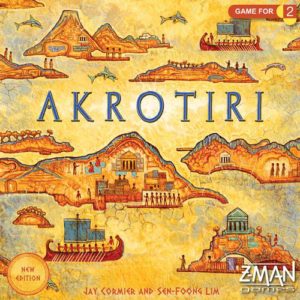
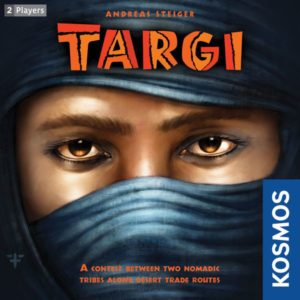
Sam says
it's kind of a crazy game where the theme - which flew over my head if there was one - is entirely irrelevant, as it's all about the shifting sands of the game state: keeping an eye on what your opponent is up to is as important and furthering your own progress. Very much like another somewhat opaque game, Hats, I do enjoy that opacity and weirdness - a first play seems utterly random but you realise there are decisions to be made here. But it's one for the canny, opportunistic puzzlers rather than the dice-chucking lovers of fast-moving silliness or more thematic games.